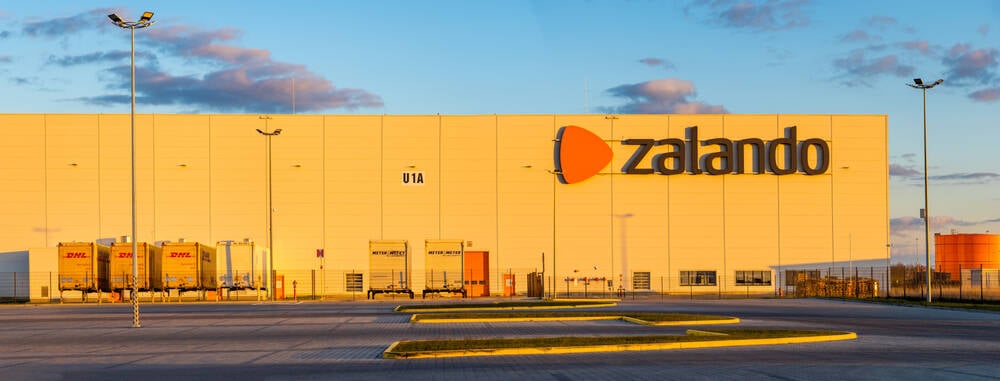First Pushback Against EU's Digital Services Act And It's Not Google

Pick two massive platforms you'd think would be first to bring the fight to the EU lawmakers over the Digital Services Act... then forget both of them. Because it was German fashion retailer Zalando that filed a lawsuit today.
The EU first unveiled its hitlist of influential platforms on 26 April. As we explained earlier that month, those companies are supposed to detail how their algorithms work, and be transparent about how their software allows ad slingers to target users or recommend content. The new rules are expected to apply from January 1, 2024.
Zalando, or as some Reg readers might know it – who? – is a €10.3 billion revenue company that operates in seven European countries and sells fashion retail online, inlcuding shoes, accessories and clothes. The company this morning filed a legal challenge at the Court of Justice of the European Union (CJEU). The fashion retailer is contesting its designation as a "Very Large Online Platform" (VLOP) by the European Commission. Under article 33 of the Digital Services Act (DSA), VLOPs have extra obligations to manage systemic risks.
The Berlin-headquartered company said in a statement that the European Commission "did not take into account the majority retail nature" of its business model and argued that it "does not present a 'systemic risk' of disseminating harmful or illegal content from third parties."
It also accuses the EU of having irregular methodology on how it decides who is and who isn't a VLOP – if the point is to protect people, its inclusion is misguided, is the apparent argument.
The retailer said:
The Commission has previously said it defines a VLOP as a company that reaches 45 million users or more, with Zalando saying on its website that it serves over 50 million "active" customers.
Robert Gentz, Zalando's chief executive, told the FT that the company was "puzzled" as to why it was designated as a very large online platform "alongside 18 other companies," adding: "We're the only European company on that list."
As for why Zalando wouldn't want to be a VLOP, the motivation is obvious. Being on the VLOP list places it under what the European Commission calls a "unique oversight structure." Under this framework, the Commission itself is the primary regulator for all very large online platforms and very large online search engines, "while other platforms and search engines will be under the supervision of Member States where they are established."
Although The Register can't speak to the veracity of these claims, some privacy and consumer activists we've spoken to have said the way the companies are dealt with by various member states can vary wildly.
- Amazon, Bing, Wikipedia make EU's list of 'Very Large' platforms
- Europe doesn't just pass laws on Big Tech algorithms, it sets up cop shops to police them
- Children should have separate sections in social media sites, says UK coroner
- EU tells Twitter 'you can run but you can't hide' from disinformation policy
Together with the DSA's "sister legislation", the Digital Markets Act (DMA), which takes aim at "core platform services" – including so-called cloud gatekeepers – the new laws are aimed at curbing the enormous power accumulated by the biggest, wealthiest and most influential companies in the world. Under the DMA, the companies face hefty fines or could even be told they need to offload assets or they can't operate within EU borders.
A Commission spokesperson told us: "We take note of the decision of Zalando. We have no comment." ®
From Chip War To Cloud War: The Next Frontier In Global Tech Competition
The global chip war, characterized by intense competition among nations and corporations for supremacy in semiconductor ... Read more
The High Stakes Of Tech Regulation: Security Risks And Market Dynamics
The influence of tech giants in the global economy continues to grow, raising crucial questions about how to balance sec... Read more
The Tyranny Of Instagram Interiors: Why It's Time To Break Free From Algorithm-Driven Aesthetics
Instagram has become a dominant force in shaping interior design trends, offering a seemingly endless stream of inspirat... Read more
The Data Crunch In AI: Strategies For Sustainability
Exploring solutions to the imminent exhaustion of internet data for AI training.As the artificial intelligence (AI) indu... Read more
Google Abandons Four-Year Effort To Remove Cookies From Chrome Browser
After four years of dedicated effort, Google has decided to abandon its plan to remove third-party cookies from its Chro... Read more
LinkedIn Embraces AI And Gamification To Drive User Engagement And Revenue
In an effort to tackle slowing revenue growth and enhance user engagement, LinkedIn is turning to artificial intelligenc... Read more

